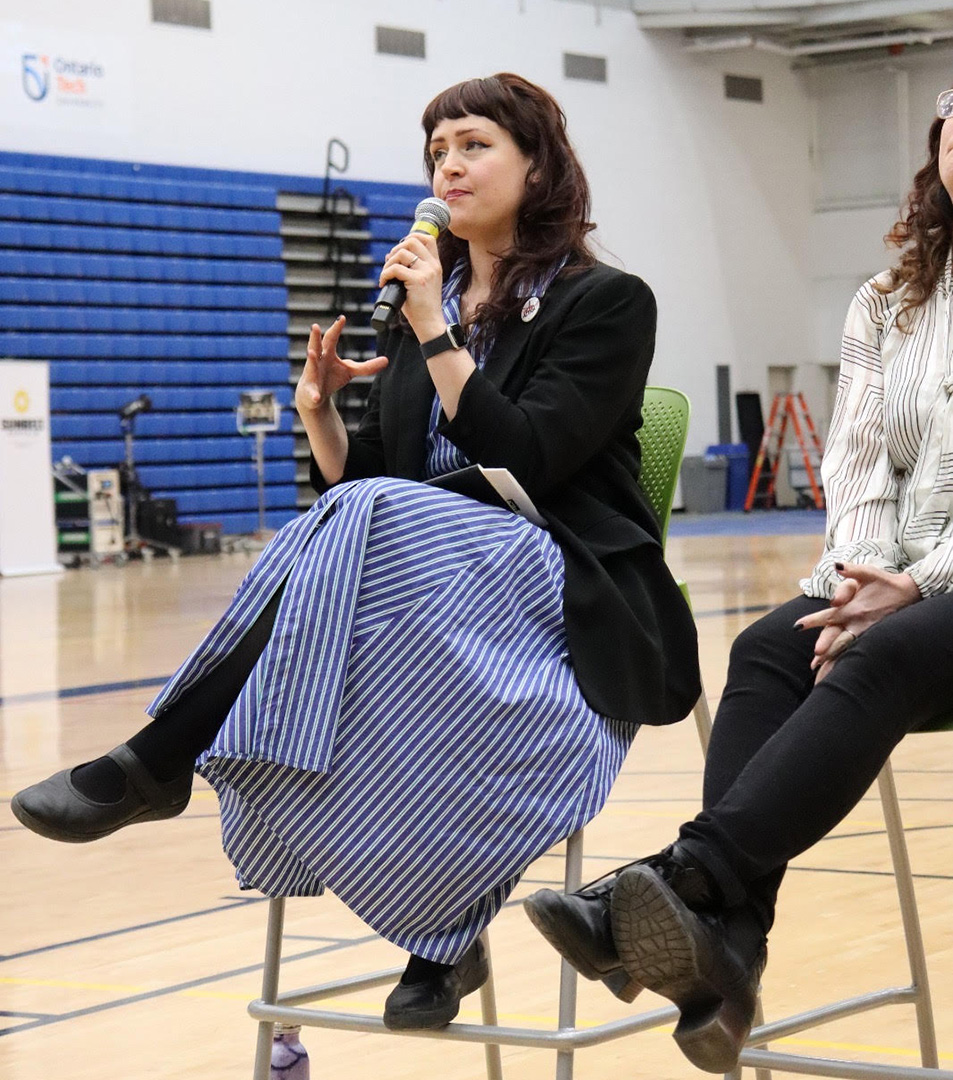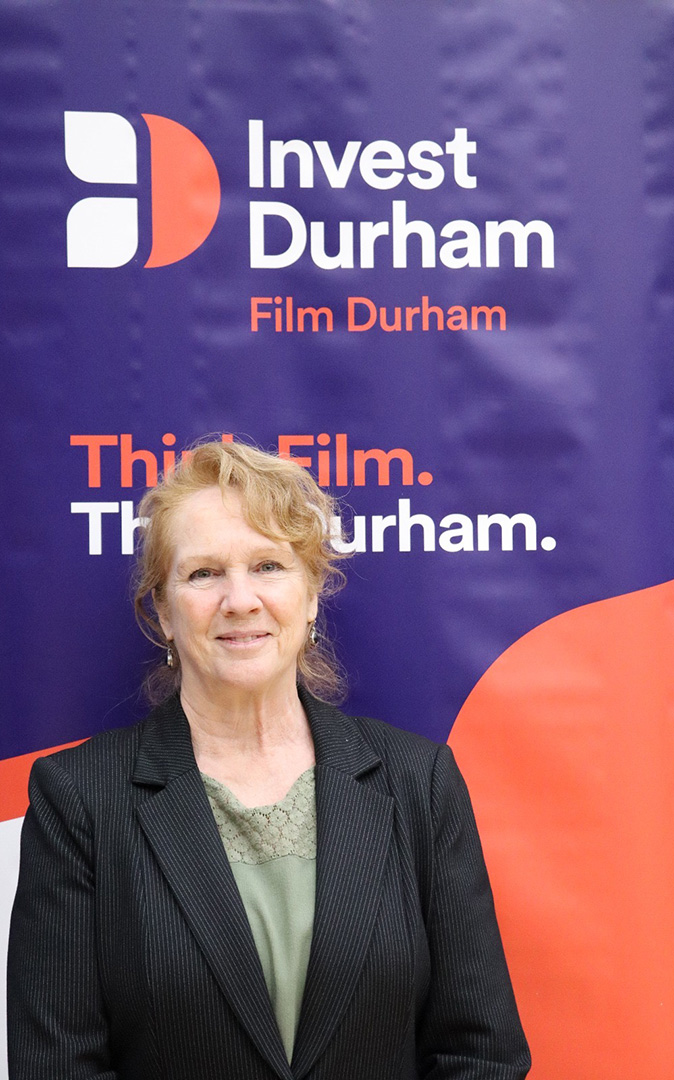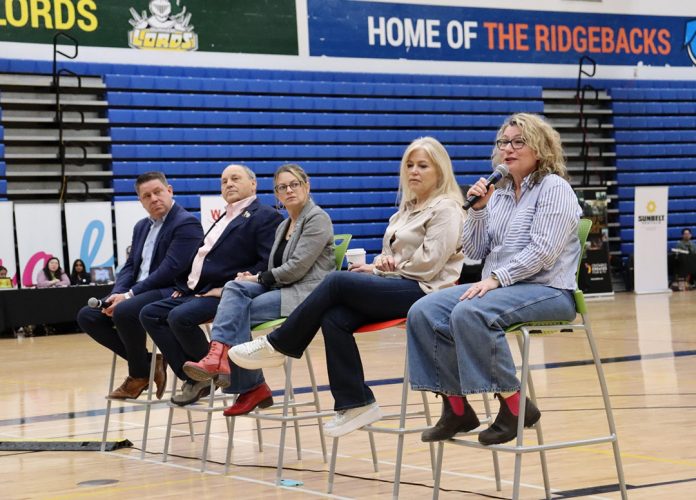The Durham Region Film and Television Industry Career Fair returned to the Oshawa campus of Durham College and Ontario Tech University on March 17, 2025, bringing together aspiring filmmakers and media professionals.
However, beyond the booths and networking sessions, the real story lies in how these hopefuls are preparing to break into an industry known for its fierce competition, shifting trends and unpredictable nature.
For many students, breaking into the film and television industry begins with classroom learning but quickly moves to real-world applications.
“Our programs are designed to be hands-on, equipping students with the skills they need to excel on set,” explained Barry Waite, the former executive dean of the faculty of media, art and design at Durham College.
“But it’s more than just learning technical skills; it’s about passion. Students need to get involved by volunteering at film festivals, creating personal projects and building a portfolio,” he added.
Waite encouraged students to take full advantage of opportunities outside the classroom.
“Attend industry events, assist with non-profits, and create your own work. These activities not only build a portfolio but also show your commitment to employers,” he said.
For many students, preparing for a career in the film industry isn’t just about acquiring technical skills, it’s also about building a professional network.
This was emphasized by Taisaa Dekker, director of outreach and industry development at ACTRA Toronto. “Networking is key in this business,” she said.
“Attending festivals, talking to industry professionals and understanding the union’s role in the industry can open doors. Students need to be proactive and take every chance to connect with others.”
Dekker added that volunteering and entry-level positions are excellent ways to gain industry experience.

“Getting started may not be glamorous, but it’s a way to learn the ropes, understand the working culture and meet people who can help you in the future,” she advised.
The pandemic and recent industry strikes have reshaped hiring trends. “The industry is looking for more than just technical expertise,” explained Eileen Kennedy, the Durham Region film commissioner at Film Durham.
“Post-pandemic, recruiters are now prioritizing adaptability. We want individuals who can pivot quickly, collaborate across disciplines and understand the industry’s evolving business model.”

According to Kennedy, this shift has made it more important for students to be aware of the broader industry changes.
“The production model has changed, and students need to be prepared for that. They must be flexible, ready to work in a team and understand how to manage the demands of a freelance career.”
The challenges of navigating such a dynamic industry can feel daunting, but as Kennedy observed, “The fair offers an opportunity to understand that persistence and flexibility are key to succeeding in this field.”
While enthusiasm was evident, a noticeable gap exists between what recruiters are looking for and what students are offering.
Waite acknowledged this gap, saying, “Our programs provide solid technical training, but there’s a shift happening in the industry. Recruiters are looking for more than just technical expertise—they want strong communication skills, the ability to solve problems and an understanding of the freelancing culture.”
Dekker also emphasized that soft skills are just as important as technical knowledge. “While it’s essential to have the skills to do the job, students also need to be prepared for the unpredictable nature of the work. Being adaptable, flexible and a team player is critical,” she said.
Kennedy echoed this sentiment, adding, “It’s important for students to realize that the industry is a lot of hustle. The first few years can be tough, and employers are looking for candidates who are committed, who show initiative and who understand that freelancing isn’t always a 9-to-5 job.”
For many aspiring filmmakers, the fair provided not only the chance to meet potential employers but also the opportunity to face the reality of a challenging industry.
“There’s no one-size-fits-all path,” Waite explained.
“Students who succeed are those who are adaptable, continuously building their network and gaining real-world experience. It’s about passion, persistence and staying ahead of the curve.”
Despite the tough industry climate, students remain optimistic about the possibilities. “I’m excited to continue learning and pushing myself,” said Sameer Ali, a second-year psychology student at DC.
“Events like this show me there’s hope. You just have to be ready to adapt and hustle.”
As the film and television industry continues to change, the career fair serves as an important reminder for students to not only hone their technical skills but also to stay aware of the broader shifts in the industry. Those who can adapt and rise to the challenge are more likely to make it in this competitive, ever-evolving field.




